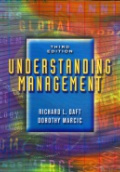
Direct Taxation in Relation to the Freedom of Establishment and the Free
ISBN: 9041123636
Vydavateľstvo: Kluwer Law
Rok vydania: 2005
Nárok na dopravu zdarma
This major new study analyses the case-law of the European Court of Justice on the freedom of establishment and the free movement of capital in matters of direct taxation. The author identifies two areas where cases from the European Court of Justice are especially important: what constitutes discrimination, and which circumstances may justify such discrimination. Among his specific approaches to the complex issues involved may be noted the following: the Court's interpretation of discrimination and restriction; the grounds of justification, according to the rule-of-reason doctrine, accepted by the Court, such as the prevention of tax abuse; the grounds rejected by the Court, such as lack of harmonization and counterbalancing advantages; the characteristics of national legislation on direct taxation that the Court has found to be in breach of the freedom of establishment and the free movement of capital; the neutrality between different forms of establishment, in the form of either a branch or a subsidiary; the degree of convergence between the freedom of establishment and the free movement of capital, especially in cases on direct taxation; and, the territorial extension of the free movement of capital. "Direct Taxation in Relation to the Freedom of Establishment and the Free Movement of Capital" uncovers the present principal standpoints of the Court, how those standpoints have evolved, and how they are likely to develop in the coming years. As all proposals on unified corporate taxation of the European Union must consider the findings of the European Court of Justice on the compatibility of national tax legislation with Community law, and as individual Member States must consider and follow the case-law of the European Court of Justice when revising old tax legislation and adopting new legislation in this area, the significance of this penetrating analysis cannot be underestimated. It will be of immeasurable value not only to European policymakers and tax lawyers, but to tax and business lawyers worldwide engaged in European commerce














